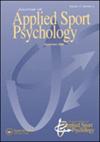考虑游戏的成本:青少年冰球中的消费者行为和家长
IF 2.7
2区 心理学
Q2 HOSPITALITY, LEISURE, SPORT & TOURISM
引用次数: 1
摘要
消极的体育家长行为继续阻碍运动员、教练和项目管理员在各种青少年体育环境中享受积极的体验。与此同时,支持青少年参与体育运动所需的日益增长的财政成本已被确定为家长压力的来源,也是阻碍运动员充分享受青少年体育项目所提供的一切的障碍。因此,本研究的目的是探索如何通过消费者行为文献中起源的概念框架来理解体育父母的观念和行为。使用已建立的消费者决策模型来构建该项目的访谈指南,完成了对加拿大冰球家长(7名“妈妈”和8名“爸爸”)的15次半结构化访谈。访谈问题的构建是希望探索参与者作为他们孩子冰球节目的消费者的经历。在采访记录之后,专题分析的完成表明,冰球父母受到各种外部压力的影响,他们继续为孩子的参与提供资金,而不是他们个人对项目质量的看法和评估。因此,我们观察到父母进行了一种独特的消费过程,其中他们的购买行为最好通过他们的文化世界和社会群体的影响以及他们的孩子在非体育相关结果(即生活技能,友谊)方面的潜在成就来理解,而不是他们对青少年冰球节目的满意度,因为他们是节目本身的一部分。概要:我们采访了15位孩子参加青少年冰球项目的家长,了解他们作为项目消费者的行为。家长们透露,尽管冰球为他们的家庭带来了各种各样的好处,但他们(a)对节目质量本身不满意,(b)觉得节目不太可能改进。在制定对抗父母消极行为的策略时,应考虑到父母在青少年体育项目购买方面的压力和挫折(即,对他们购买的满意度)。对于青少年体育项目来说,实施更严格的机制来接收和处理来自父母的反馈可能是有用的。采用消费者行为文献中的策略(例如,品牌忠诚度;消费者满意度)可能有助于帮助青少年体育节目在未来改善与青少年体育家长的关系。本文章由计算机程序翻译,如有差异,请以英文原文为准。
Considering the cost(s) of the game: Consumer behavior and parents in youth ice hockey
Abstract Negative sport parent behavior continues to impede athletes, coaches, and program administrators from enjoying positive experiences within a variety of youth sport environments. In conjunction with this issue, the growing financial cost required to support youth sport participation has been identified as a source of stress for parents as well as a barrier preventing athletes from fully enjoying all that youth sports programming has to offer. As such, the purpose of the current study was to explore how sport parent perceptions and behaviors may be understood when examined through the conceptual lens of a framework originating within the consumer behavior literature. Using an established model of consumer decision-making to structure the project’s interview guide, 15 semi-structured interviews with Canadian ice hockey parents (seven “moms” and eight “dads”) were completed. Interview questions were constructed in hopes of exploring participants’ experiences as consumers of their children’s ice hockey programming. Following interview transcriptions, the completion of a thematic analysis suggested that ice hockey parents were influenced by a variety of external pressures to continue funding their children’s participation rather than their personal perceptions and assessments of program quality. As such, parents were observed to undertake a unique process of consumption—one wherein their purchasing behavior was best understood through the influences of their cultural world and social groups as well as their children’s potential attainment of non-sport-related outcomes (i.e., life skills, friendships) rather than their satisfaction with the youth ice hockey programming that they were a part of itself. Lay summary: Fifteen parents with children enrolled in youth ice hockey programming were interviewed regarding aspects of their behaviors as program consumers. Parents disclosed that, although ice hockey provided their families with a variety of benefits, they were (a) dissatisfied with the programming quality itself and (b) felt program improvements were unlikely. IMPLICATIONS FOR PRACTICE Accounting for parental stress and frustration around their youth sports program purchases (i.e., satisfaction with their purchases) should be considered when creating strategies to combat negative parental behaviors. It may be useful for youth sports programs to implement more rigorous mechanisms for receiving and addressing feedback from parents. Adopting strategies from the consumer behavior literature (e.g., brand loyalty; consumer satisfaction) may be helpful to aid youth sport programmers to improve relationships with youth sport parents in the future.
求助全文
通过发布文献求助,成功后即可免费获取论文全文。
去求助
来源期刊
CiteScore
6.90
自引率
9.40%
发文量
39
审稿时长
>12 weeks
期刊介绍:
The Journal of Applied Sport Psychology (JASP) is a refereed journal designed to significantly advance thought, theory, and research on applied aspects of sport and exercise psychology. Submissions such as experimental studies, qualitative research, correlational studies, case studies, position papers, critical reviews, theoretical developments specific to applied research conducted in sport and/or exercise settings, or having significant applied implications to sport and exercise, are appropriate content for the JASP. Please see the recent Editorial for further details on the aims and scope of the journal. JASP is a non-proprietary journal that is an official publication of the Association for Applied Sport Psychology (AASP). The purpose of AASP is to promote the development of psychological theory, research, and intervention strategies in sport and exercise psychology. The Journal is a direct benefit of membership in AASP and is received by its student and professional members. The publisher of the JASP is Taylor and Francis, Inc. of Philadelphia, PA.

 求助内容:
求助内容: 应助结果提醒方式:
应助结果提醒方式:


